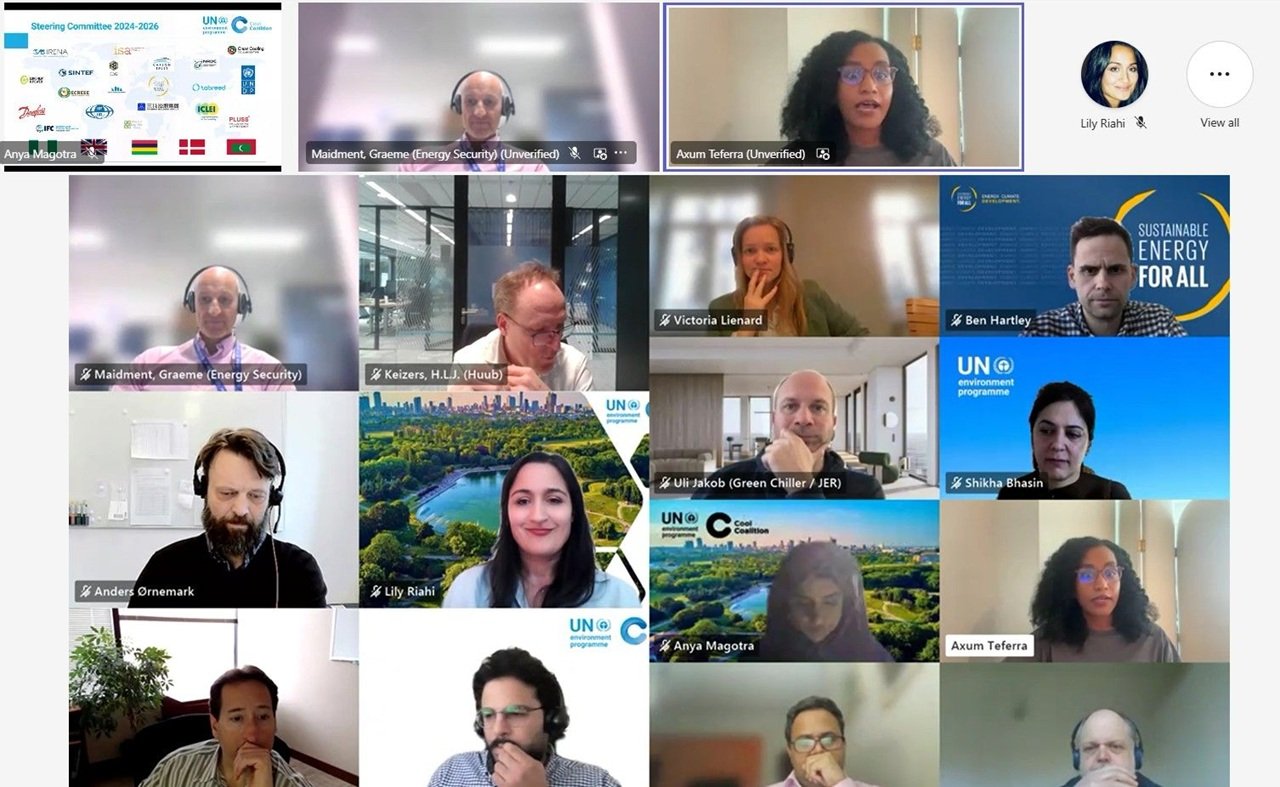On 18 March 2025, the United Nations Environment Programme (UNEP) Cool Coalition hosted its first Membership Coordination Call of the year, assembling over 70 representatives from governments, businesses, civil society, and international organizations. The session aimed to align the Coalition’s governance structure, strengthen policy integration, and outline priorities ahead of the United Nations Climate Change Conference (COP30) in Belém, Brazil.
The Cool Coalition promotes global collaboration across the cooling value chain and now includes more than 130 members. Its work is anchored in the Global Cooling Pledge, which seeks to reduce cooling-related emissions by 68% by 2050. Over 70 national and subnational governments and 50 institutional supporters have signed the pledge.
Cool Coalition Global Coordinator Lily Riahi opened the call by urging collective action. “We’ve put cooling on the global agenda, and we have political support for the Global Cooling Pledge. Now we need to demonstrate on-the-ground implementation,” she said.
The meeting featured updates on governance and strategic planning. Co-chaired by Axum Teferra (Clean Cooling Collaborative) and Graeme Maidment (UK Department for Energy Security and Net-Zero), the session highlighted the 2024–2026 Steering Committee’s role in guiding initiatives. Maidment emphasized the need for collaboration: “There’s a wealth of activity happening across the Coalition; we must make it visible and connected.”
Amr Seleem, Country Engagement and Climate Policy Lead, introduced the forthcoming Intergovernmental Committee on Cooling (IGCC), which will expand governance for the Global Cooling Pledge. The IGCC is set to be adopted at COP30 and become fully operational by 2026.
Integrating cooling into national climate policies was a key focus. Dietram Oppelt (HEAT) shared updates on upcoming guidelines for including the cooling sector in Nationally Determined Contributions (NDCs), while Etienne Gonin (UNDP) and Ben Hartley (SEforALL) discussed progress on National Cooling Action Plans (NCAPs) in countries such as Jordan, Egypt, Madagascar, and Zambia.
On technical priorities, Manjeet Singh (Cool Coalition) underscored passive cooling’s importance and highlighted initiatives in Cambodia and Viet Nam. Huub Keizer (TNO) emphasized urban heat adaptation through design and planning. Graeme Maidment pointed to learnings from the UK’s extreme heat events, and Patrick Blake (UNEP) provided updates on energy efficiency measures, noting that 49 pledge signatories have adopted Minimum Energy Performance Standards (MEPS).
Refrigerant management was another key topic. Denise San Valentin (Climate & Clean Air Coalition) presented the 2030 Cooling Strategy, which supports a shift away from high-GWP HFCs.
In the data and science segment, Xinfang Wang (UK Department for Energy Security and Net Zero) highlighted the need for standardized emissions data, while Ray Gluckman previewed the 2025 Global Cooling Watch, which will include new targets and insights into heat-related demand.
Looking ahead to COP30, Marisofi Giannouli (Cool Coalition) announced outreach plans including the second Global Cooling Pledge Ministerial Roundtable and a dedicated pavilion at COP30. She also introduced the Cool Talks webinar series, encouraging members to contribute.
The call concluded with a message of momentum and unity. “It is through this community that we can provide the joint technical support and accountability needed to transform ambition into action,” said Lily Riahi.
